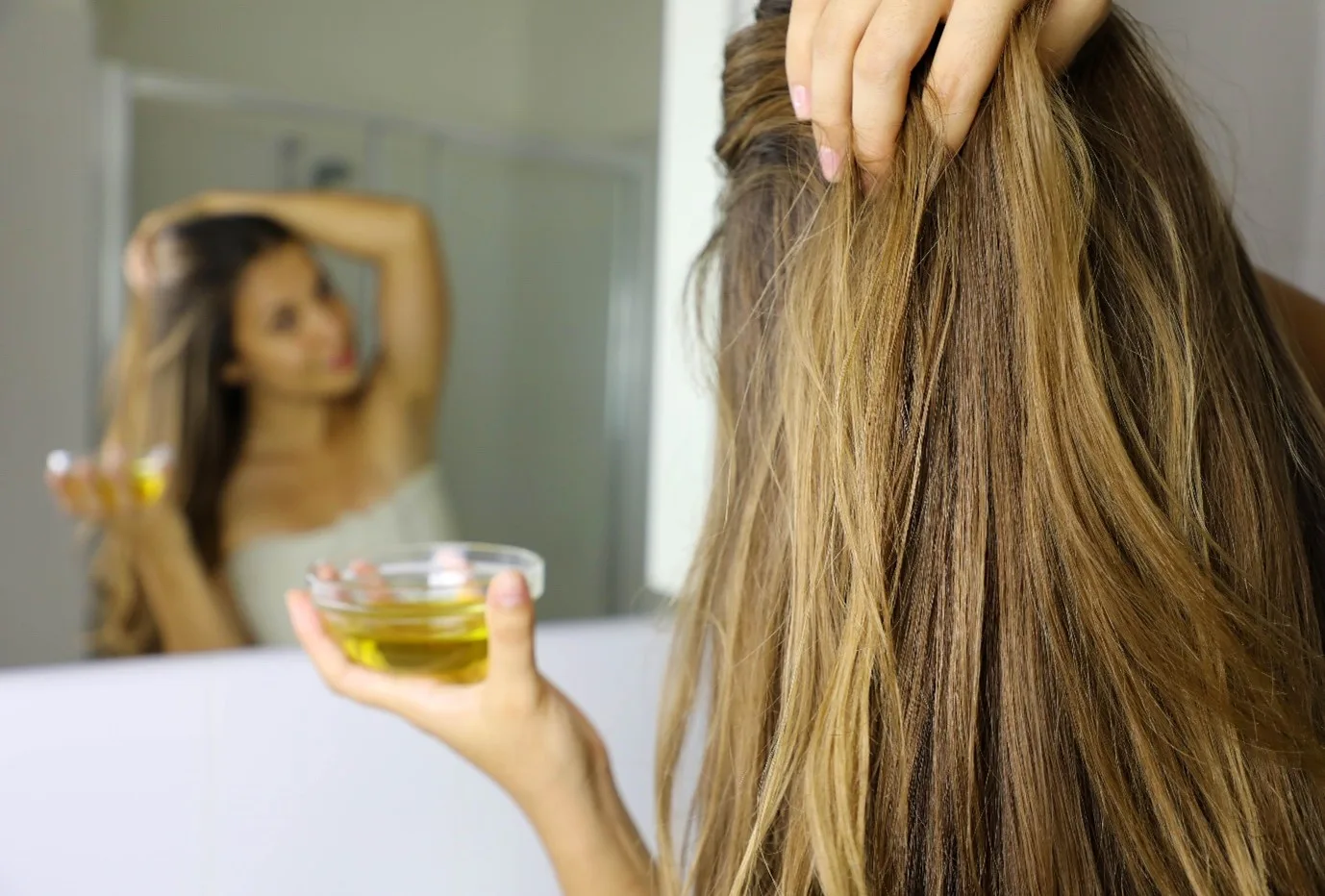OILS AND THEIR EFFECTS ON DANDRUFF
One of the most commonly sold solutions for dandruff is oiling your hair. But do you know which oil to select and if it actually works?

Oils have been used in some form ever since people learnt how to extract them. Applying it to your hair and scalp, holds a special place in most people’s childhood. But if you’re looking at oil as a home remedy for dandruff, it all depends on which one you’re applying to your scalp.
Dry scalp vs. Dandruff
The familiar misconception is that the flaking which happens with dandruff is related to a dry scalp. But these are two entirely different problems that require different approaches.
Dandruff is generally caused by a naturally occurring fungus called Malassezia Globosa. This fungus feeds on the excess sebum or oil that is found on your scalp. It breaks down the oil into oleic acid, which half of the people in the world react to. Only in that particular case will it lead to itching, redness and oily white-yellow flakes.
The flakes that you see with a dry scalp are also dead skin cells similar to dandruff, but they’re usually smaller and don’t clump on your hair strands. This distinction is important because people believe that they are the same thing. So while using oils for dry scalp might work, using the same hair oils for dandruff could actually make your condition worse.
Are there any hair oils for dandruff?
You can’t look for oils that are pure moisturisers, as those are meant for a dry scalp. Instead, if you are looking for an anti dandruff oil, you need to look at the properties of the oil that can counter the effects of dandruff.
If dandruff is caused by a fungus, you need to look for an oil that contains anti-fungal and anti-bacterial properties. Along with that, you need to look for anti dandruff oils that calm any inflammation on your scalp and soothe the itching sensation that comes with dandruff.
-
Coconut oil –
The most frequently used on hair, this oil could potentially help with your dandruff. It is primarily used for moisturising your scalp, but also contains certain anti-microbial properties that can get rid of germs. It has shown to be effective against inflammation and infections. You can apply it directly or create a hair mask with lemon juice, honey, aloe vera, or even essential oils. Leave it in overnight or for an hour, based on your requirement. Wash with a gentle shampoo after. -
Argan oil –
This oil, that comes from the Argan tree fruit, is probably the best oil for dry scalp and dandruff. It creates a protective layer on your scalp and prevents moisture loss from the head. It also contains anti-inflammatory properties that can sooth the itching. Apply this oil directly to your scalp or combine it with another carrier oil. Be careful with the quantities. -
Tea tree oil –
Using this oil for dandruff can have a positive impact due to its anti-fungal and anti-bacterial nature. It can moisturise your skin and treat infections. You must be careful and not apply undiluted tea tree oil to your head, as it can cause severe itching and burning. You can combine it with a carrier oil like olive oil and apply it to your head. Leave it in for a bit and then shampoo thoroughly. Some people also add a few drops of tea tree oil to their shampoo before washing. -
Rosemary or Peppermint oil –
These essential oils can possibly work as anti dandruff hair oils and leave you smelling fresh. Rosemary is said to contain anti-fungal properties and Peppermint contains anti-inflammatory characteristics, that can soothe your itching scalp. Both are said to get rid of the dirt and excess oil that is found on your scalp, which is the cause of your dandruff. You can combine each with a carrier oil before applying it to your head or you can add a few drops to your shampoo. -
Lemon oil –
Lemon juice is often used, but lemon oil doesn’t find much reference in hair conversations. This oil contains anti-microbial and anti-fungal properties that can keep your dandruff in check. Using this oil can clear excess build up on your scalp and reduce inflammation. Use a mixture of lemon oil and a carrier oil on your hair. Wash with a shampoo when required.
Anything to be concerned about?
Although these oils have shown to reduce dandruff for some people, it does not mean that it works for everyone. You could try and see how your body reacts to it, because the best oil for dandruff is only the one that works for you. If you have an allergic reaction, stop immediately.
The amount of oil you use is also a concern. Using too much oil on your scalp can lead to an increase in oil build up, which is one of the causes of dandruff. It can trap dirt and microbes that can cause inflammation and increase itching. You might just end up making your condition worse.
If you want a proven method, always go for a dandruff shampoo like the Head and Shoulders Neem or Lemon Fresh, that can get rid of the dandruff causing germs from your scalp. You can also use the Head and Shoulders 2 in 1 Cool Menthol, that can restore your dry hair and leave you with dandruff free hair.



